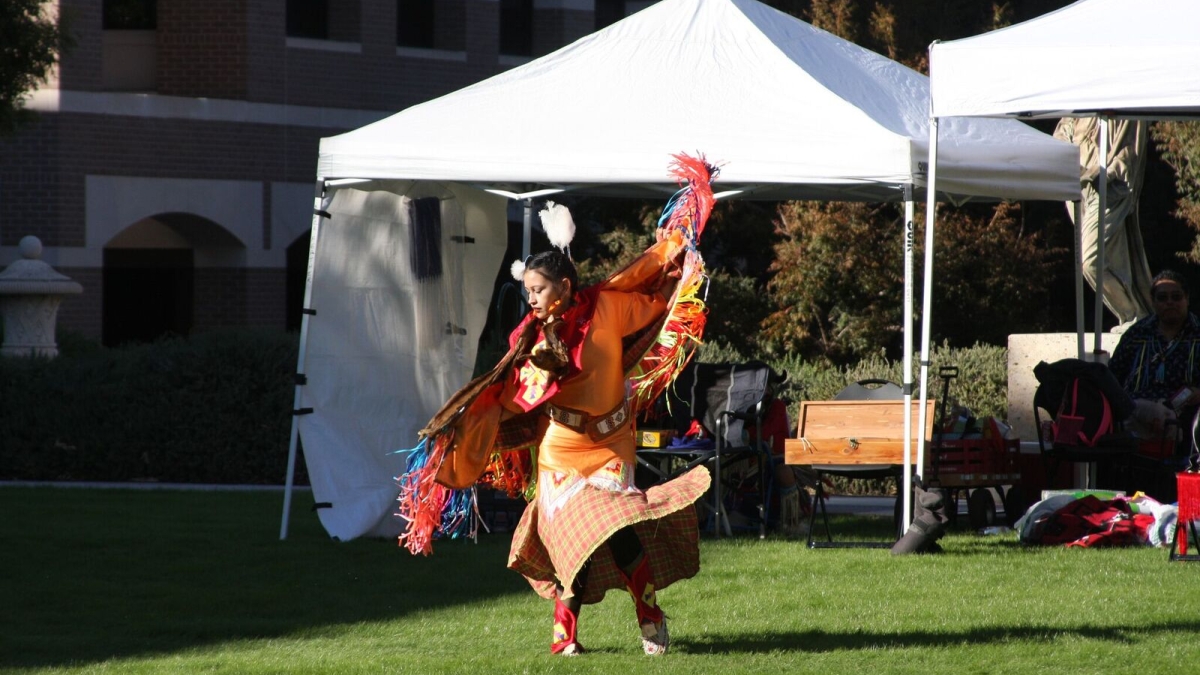ASU powwow to celebrate Native veterans

It’s hard to miss evidence of Indian history and culture in metro Phoenix: Valley residents drive down Apache Boulevard, hike past Hohokam petroglyphs on A Mountain and enjoy fry bread at fairs and festivals.
Yet, the influence often goes unnoticed.
An ASU event that honors military veterans, however, is rapidly growing a reputation as an opportunity to recognize the contributions of Native Americans through ceremony, celebration and face-to-face interactions. On Saturday, Nov. 12, ASU West will host the 16th annual Veterans Day Weekend Traditional Pow Wow, an all-day gathering, free and open to the public, featuring Native drummers, singers, dancers, artists and food.
This year’s theme is “A Celebration of Native Veterans,” but organizers say all vets are welcome to take part and will be honored in a special evening ceremony.
Event planner Jacob Meders says the powwow represents a chance for people to explore the history that led to the Apache Boulevard name, ask about the petroglyphs or learn the story behind fry bread.
“We have so many misunderstandings of what Native culture is and who Native people are, and (at the powwow) there’s such a wide range of Native people all in one place, and they’re willing to hang out and talk and share,” said Meders, assistant professor in the School of Humanities, Arts and Cultural StudiesThe School of Humanities, Arts and Cultural Studies is part of the New College of Interdisciplinary Arts and Sciences..
Event chairman Dennis Eagleman agrees, saying he recognized the need for such connections about 10 years ago leading an immersion tour for West campus’ Native American Student Organization. He had been taking non-Native students on a trip through some of the more than 20 reservations in Arizona when he realized just how uninformed much of the general public could be.
“There were people who had lived in Phoenix their whole life saying, ‘We’ve never been to a reservation, are we allowed?’” he recalled with a chuckle. (The answer: Yes.)
The ASU powwow started as a way to honor a Native service member who was being deployed to Iraq, and it has grown into an annual celebration celebrating veterans and Indian culture.
The term powwow has become a catchall for the celebrations of North American indigenous people. Throughout history — across various tribes and names — such events have always been about honoring aspects of Native culture. And much like certain songs, stories and foods, the concept of the “warrior society” has long been deeply engrained in Native communities, and therefore celebrated at such gatherings.
Eagleman, a member of the Fort Peck Sioux Tribe, discussed the context, saying: “Basically, everybody was a veteran. You had wars, and everybody fought. … It’s like in ‘Dances with Wolves’ when one character was trying to explain to another that everybody’s a warrior. It’s not like there’s one certain group.”
Today, Native Americans have the highest number of service members per capita of any ethnic group in the nation, according to the U.S. Department of Defense.
Though neither Eagleman nor Meders are veterans, they both count vets among their family members. Eagleman’s father was a member of the U.S. Navy, and Meders’ father, grandfathers and uncles served in various branches.
Meders, of the Mechoopda Tribe, jokes that he was granted a pass on the military lifestyle and instead graduated from ASU in 2011 with a master’s in printmaking. When he’s not teaching at West campus, he runs a studio in downtown Phoenix, Warbird Press. One of his favorite things about the powwow is the chance to share Native art.
“Native people are really truly original interdisciplinary artists,” he said. “Storytellers, dancers, singers, visual artists. That’s always been part of who we are. There’s so many renaissance Native people” in professions such as law who also “do beading, or storytelling, or dancing. They do it all.”
Both Eagleman and Meders hope the public will take advantage of the opportunity to learn and engage.
“If somebody non-Native were to go to the powwow and start asking questions, some of the [Native] people will talk your head off,” said Eagleman, enthused.
“You have to start somewhere,” said Meders, “and a powwow is probably the most laid-back, easiest way to engage. … We’re not asking people to feel guilty about their ancestors. But we are asking them to truly understand the true history of this country.”
For information, including parking and a complete schedule of events, go to: https://outreach.asu.edu/west/pow-wow.

